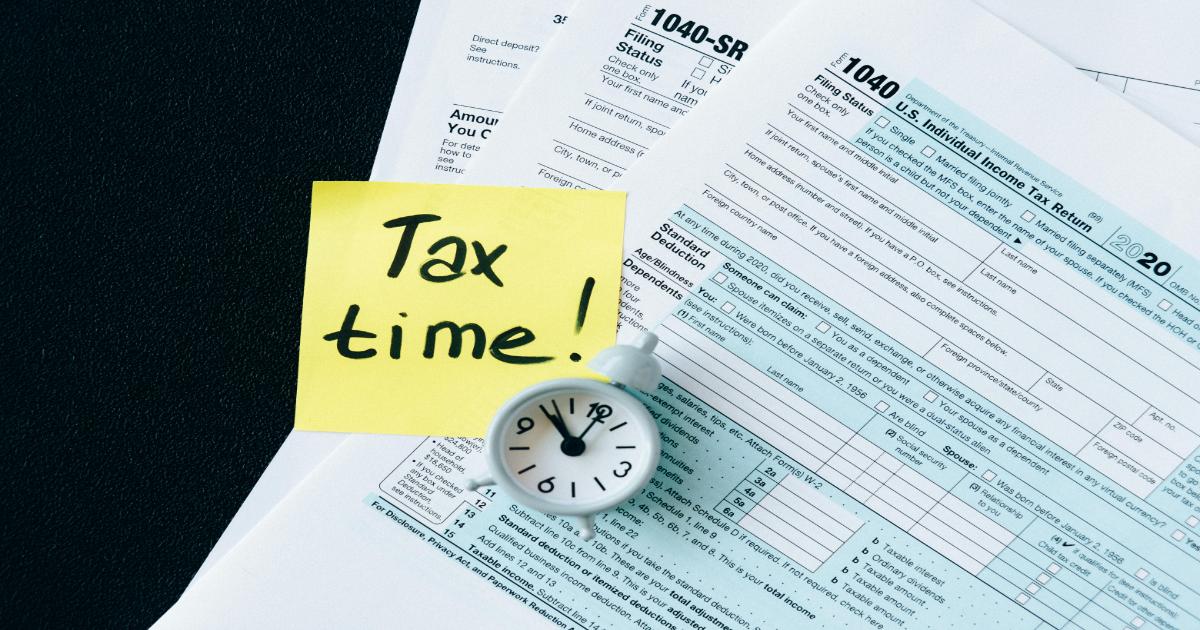When Are Taxes Due? A Simple Guide to U.S. Tax Filing Deadlines
By Tax&Facts | Published on | Read: 3 Mins
One of the most important dates on every taxpayer’s calendar is Tax Day — the deadline to file your federal income tax return. Missing this date can lead to penalties, interest, and unnecessary stress. Fortunately, the IRS sets clear rules, and knowing them helps you file on time — or request more time if needed.

When Is Tax Day?
The regular tax filing deadline for individual taxpayers is: April 15
However, there’s a catch...
If April 15 falls on a Saturday, Sunday, or a legal holiday, Tax Day is moved to the next business day.
Example:
If April 15 is a Saturday, the deadline would be extended to Monday, April 17 (unless that’s
also a holiday).
This applies to:
- Filing Form 1040 (your federal tax return)
- Paying any taxes you owe for the previous tax year
What If You Need More Time?
If you’re not ready to file, you can request an automatic extension using IRS Form 4868. This gives you an extra 6 months to file, pushing the deadline to:
October 15 (or the next business day if it falls on a weekend/holiday)
Note: An extension only delays your filing, not your payment. You still must pay estimated taxes by April 15 to avoid interest or penalties.
Other Key Tax-Related Deadlines
| Deadline | What It’s For |
|---|---|
| January 15 | Final quarterly estimated tax payment for the previous year (self-employed/freelancers) |
| January 31 | Deadline for employers to send W-2 and 1099 forms to employees and contractors |
| April 15 | Tax Day: File or extend your return and pay any taxes owed |
| June 15 | Second quarterly estimated tax payment due |
| September 15 | Third quarterly estimated tax payment due |
| October 15 | Extended return deadline (if Form 4868 was filed) |
Note: Business entity deadlines (e.g., S Corps, partnerships) may vary depending on entity type and tax year.
What If You Miss the Deadline?
If you owe taxes and file late, you may face:
- Failure-to-file penalty: 5% of unpaid taxes per month (up to 25%)
- Failure-to-pay penalty: 0.5% per month
- Interest: Charged on unpaid taxes, compounded daily
If you’re owed a refund, there’s no penalty — but you must claim it within 3 years or lose it.
Tips to File On Time
- Mark your calendar with all major tax dates
- Use tax software or hire a tax professional
- Set reminders to avoid last-minute filing
- File early to avoid delays or identity theft
FAQ Frequently Asked Questions (FAQ)
Q1: When does the IRS start accepting returns?
A1: The IRS typically begins accepting returns in late January, though the
exact date varies each year.
Q2: Can I still file if I missed the deadline?
A2: Yes. File as soon as possible to minimize penalties and interest. If
you're due a refund, there's no penalty — but act within 3 years.
Q3: What happens if Tax Day is a holiday?
A3: The deadline shifts to the next business day, ensuring you don’t get
penalized for filing on a non-working day.
Q4: Can I get more time to pay if I owe taxes?
A4: You can request a payment plan from the IRS. It won’t stop interest from
accruing, but it can help avoid more serious penalties.
Q5: Do states follow the same deadlines?
A5: Many states align with the federal deadlines, but some have different
rules. Check with your state’s tax agency for local dates.
Article History
v1.0 (May 19, 2025): Initial publication of the article